Developer Blog: New Mining System - New Processing Path and Pollution Info
Posted on June 25th, 2020 06:20 PM EST
In a previous Eco Peaks update I showed some of the big updates to world generation for geology and mining coming in update 9.0 for Eco. In this post I’ll present the very closely related updates to mineral processing and pollution in 9.0. Mining and mineral processing is an essential part of the global economy, since it provides the raw materials for many industries. It also raises many questions about land management, pollution, and waste storage. Tailings ponds and stacks are places where products and byproducts of mineral processing are stored long term, and they are some of the biggest structures humans build in the real world. We are excited to continue updating Eco until we have a satisfying representation of this kind of mass extraction and management of earth resources, and the consequences of their byproducts.
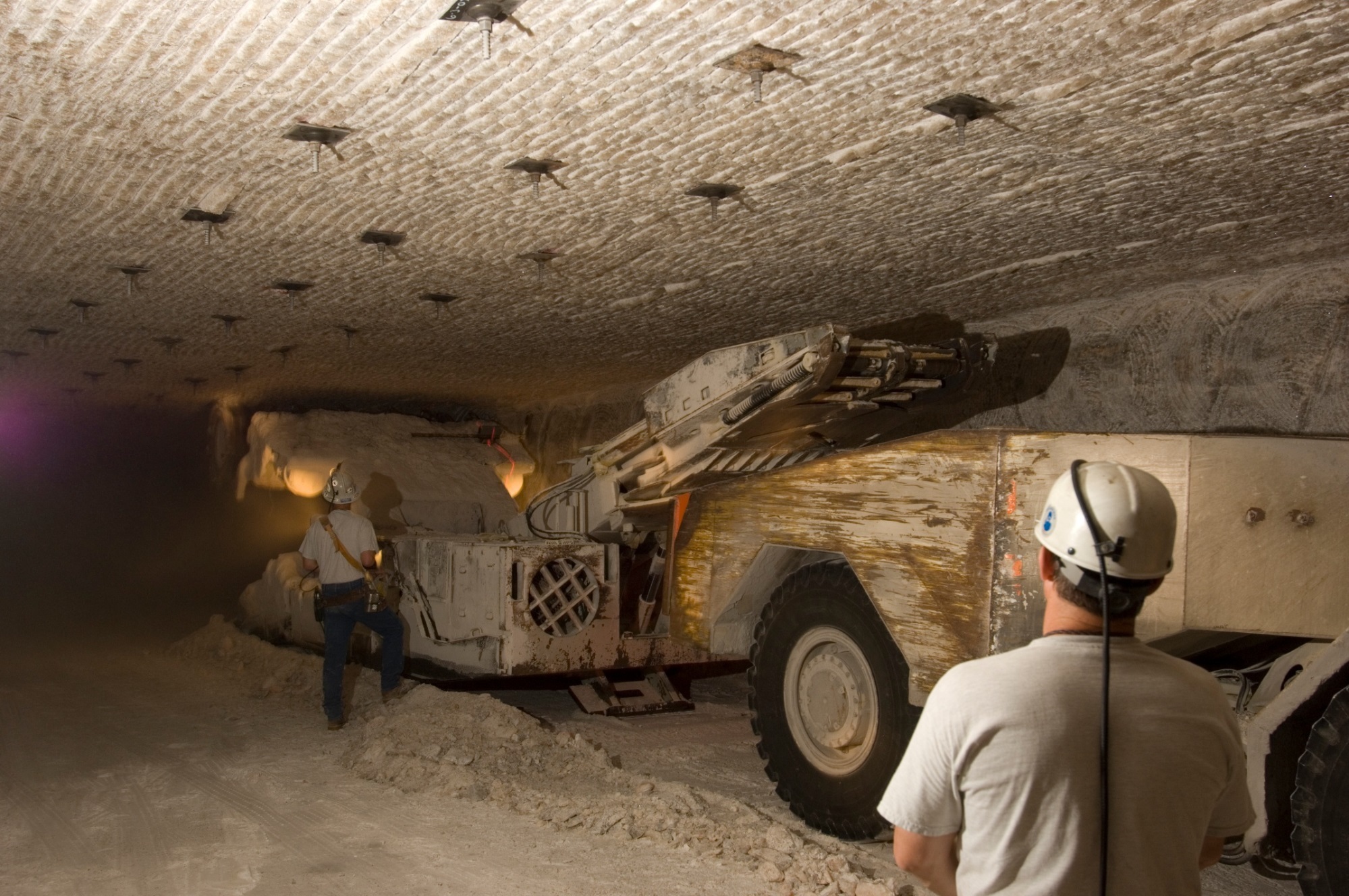
Underground Mining.
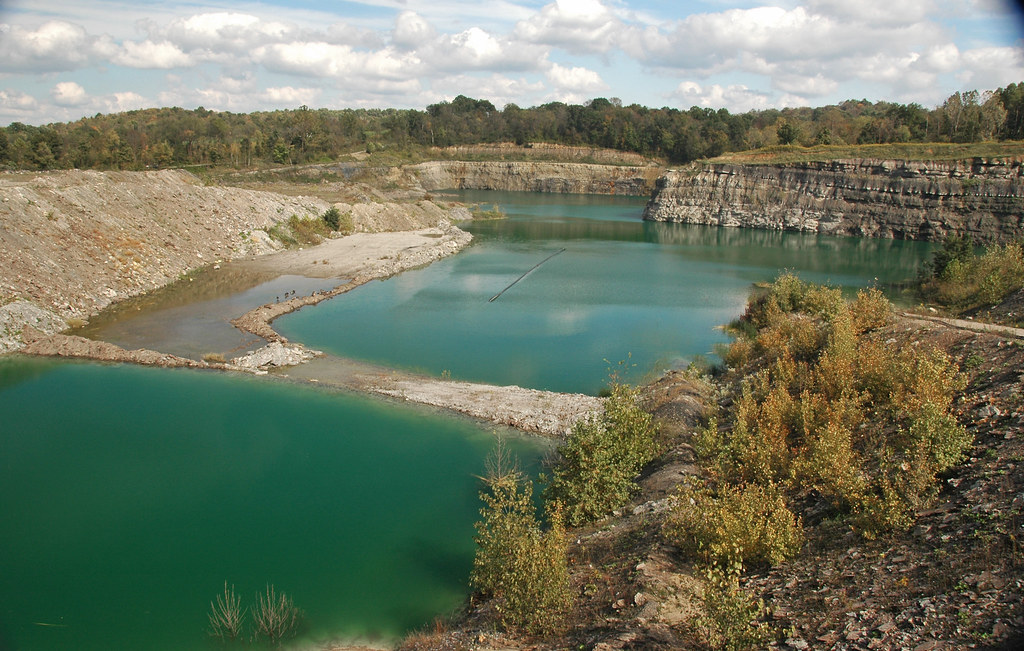
A tailings pond.
Before we go on, he is the overview over our Eco Update 9.0 Blogs so far:
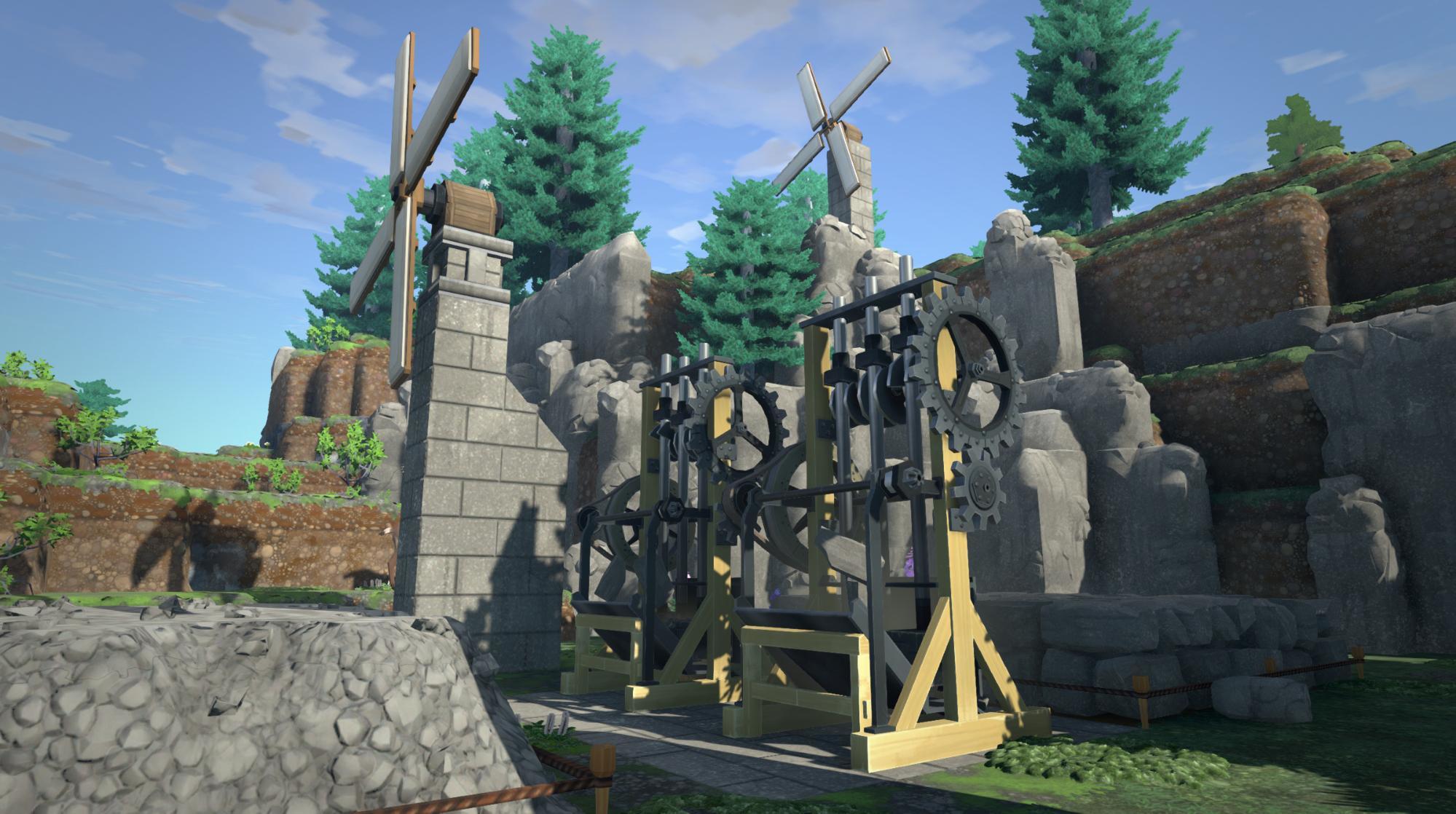
[Stamp Mills] are an early upgrade to the [Arrastra] crusher, allowing more efficient and timely crushing of rock and ore. Here, two of them are going through a stockpile of [Granite] to make [Crushed Granite], harnessing the power of the nearby [Windmills].
The biggest change from previous versions of Eco is that now to process mined ore, players must first crush and then concentrate ore to get metal concentrates which can be smelted. There is a new suite of world objects which can be used to accomplish these parts of mineral processing. Beginning with Iron Ore from a mine, here is the new layout of machines, products, and byproducts for initial early game mineral processing in 9.0:
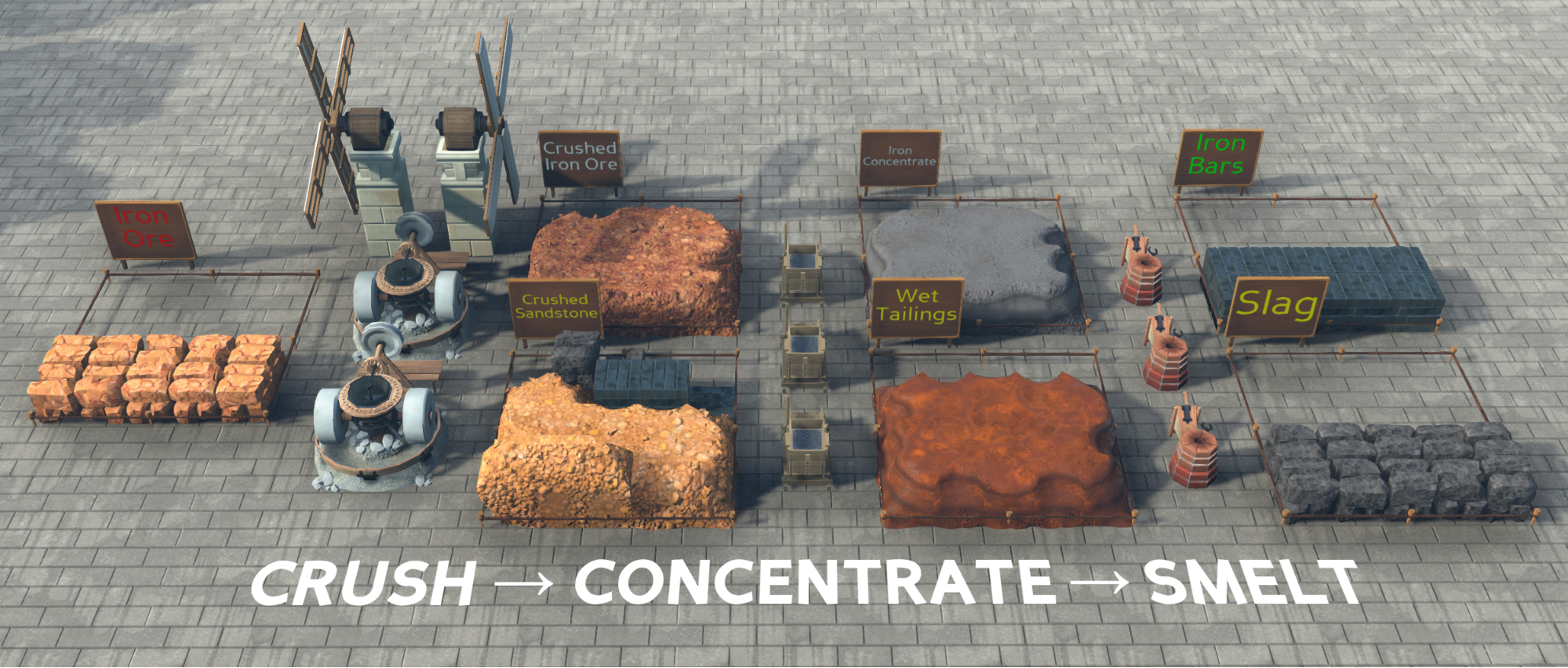
From left to right, [Iron Ore] embedded in sandstone from a mine goes through the [Arrastra] which crushes it, producing [Crushed Iron Ore] with [Crushed Sandstone] as a new byproduct. The [Crushed Iron Ore] can then be poured through a [Rocker Box] to concentrate it into [Iron Concentrate], with [Wet Tailings] coming out as a new byproduct. [Iron Concentrate] can then be smelted into [Iron Bars], with [Slag] as a new byproduct.
All the new byproducts have varying levels of usefulness, and will necessitate greater operations to store long term. Future updates to Eco will expand on uses for and effects of byproducts, for instance the potential to re-mine old tailings for more metals. For 9.0, crushed stone and other aggregate like crushed slag can always be used in roads and concrete production.
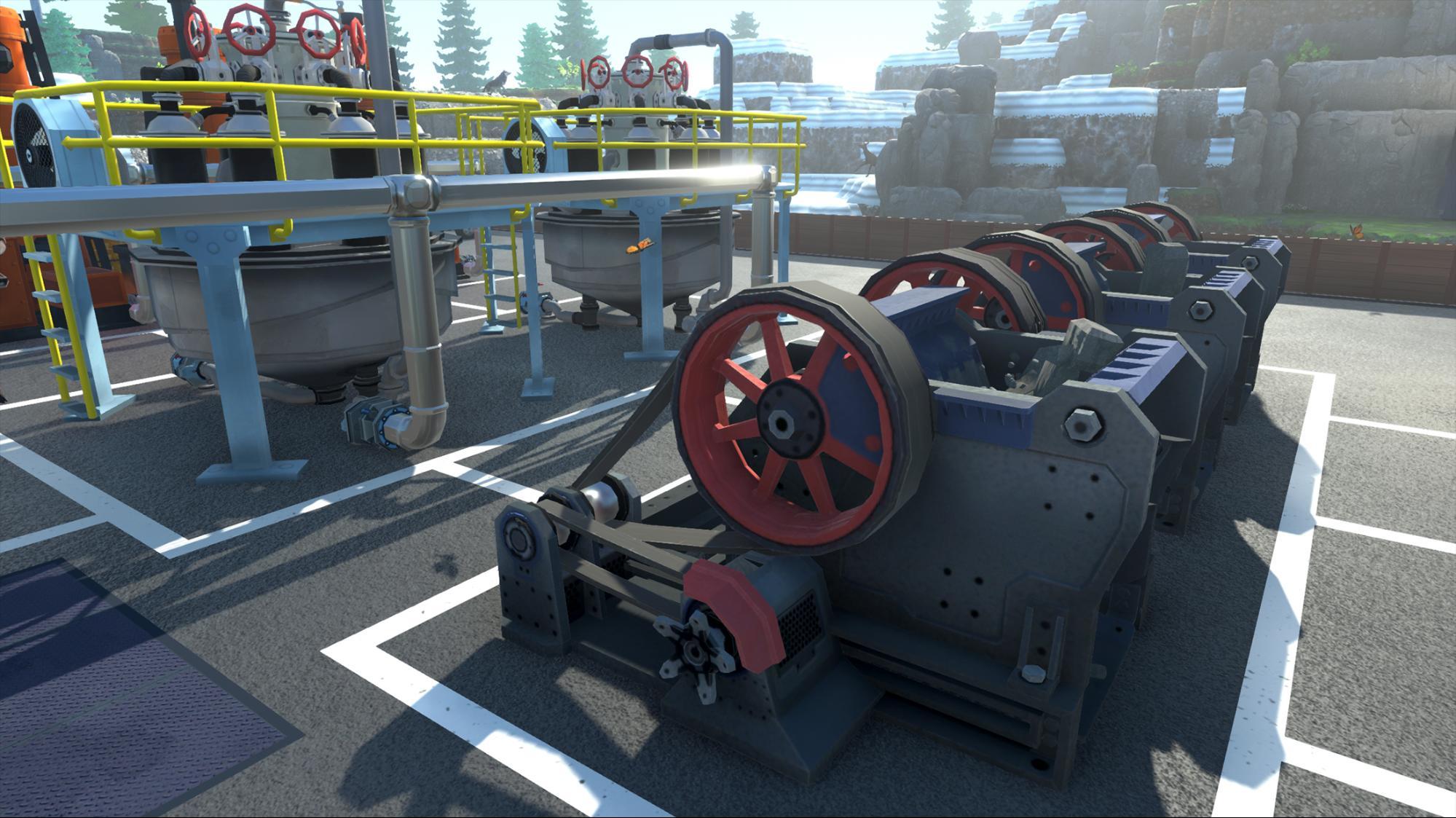
An array of advanced [Jaw Crusher] machines, chewing away at [Granite] and [Copper Ore] from a nearby Copper Mine. Froth Floatation Cells sit waiting to concentrate the crushed ore, on the left. Pipes feed the Froth Floatation Cells the water they need to function from a nearby river.
Different ores require different technologies to concentrate effectively. A simple way to think of different kinds of concentration is if they are ‘wet’ or ‘dry’. Some ores like copper and gold need more chemicals and coaxing to separate and concentrate, necessitating a ‘wet’ process.
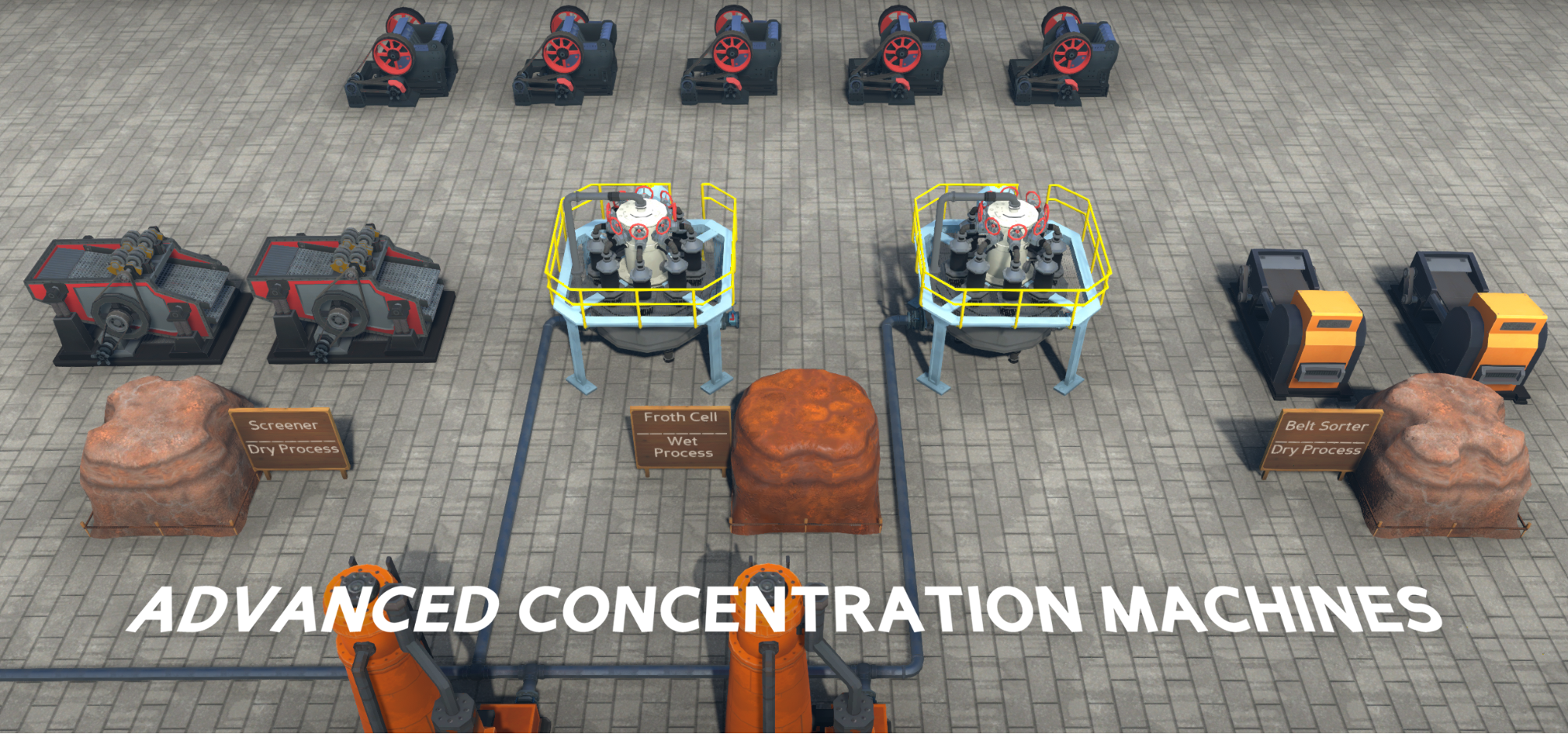
In this screenshot you can see an array of mid and end-game mineral processing technology: [Jaw Crushers] for crushing along the top, [Screening Machines], and [Sensor-based Belt Sorters] for dry concentration of iron ore, and [Froth Floatation Cells] for wet processing of all ore types in the middle. On the bottom you can see the tops of [Blast Furnaces], currently our mid and end game smelters.
A big difference between wet and dry concentration is in the byproduct produced. In 9.0 we are adding [Wet Tailings] to broadly represent the tailings produced by wet concentration processes. These tailings present a harder management problem, since they must be contained and prevented from leaking freely into their environment to avoid contamination of soils and water with freed heavy metals and residual chemicals from the processing. For now, this means they will act as a more potent pollutant in the environment and their storage must be taken more seriously. In future updates we will greatly flesh out the mechanics of tailings transport, storage, containment, and remediation or re-use. For instance, Wet Tailings will eventually be pipable, so that large mining operations can simply pipe their Wet Tailings into a nearby containment structure.
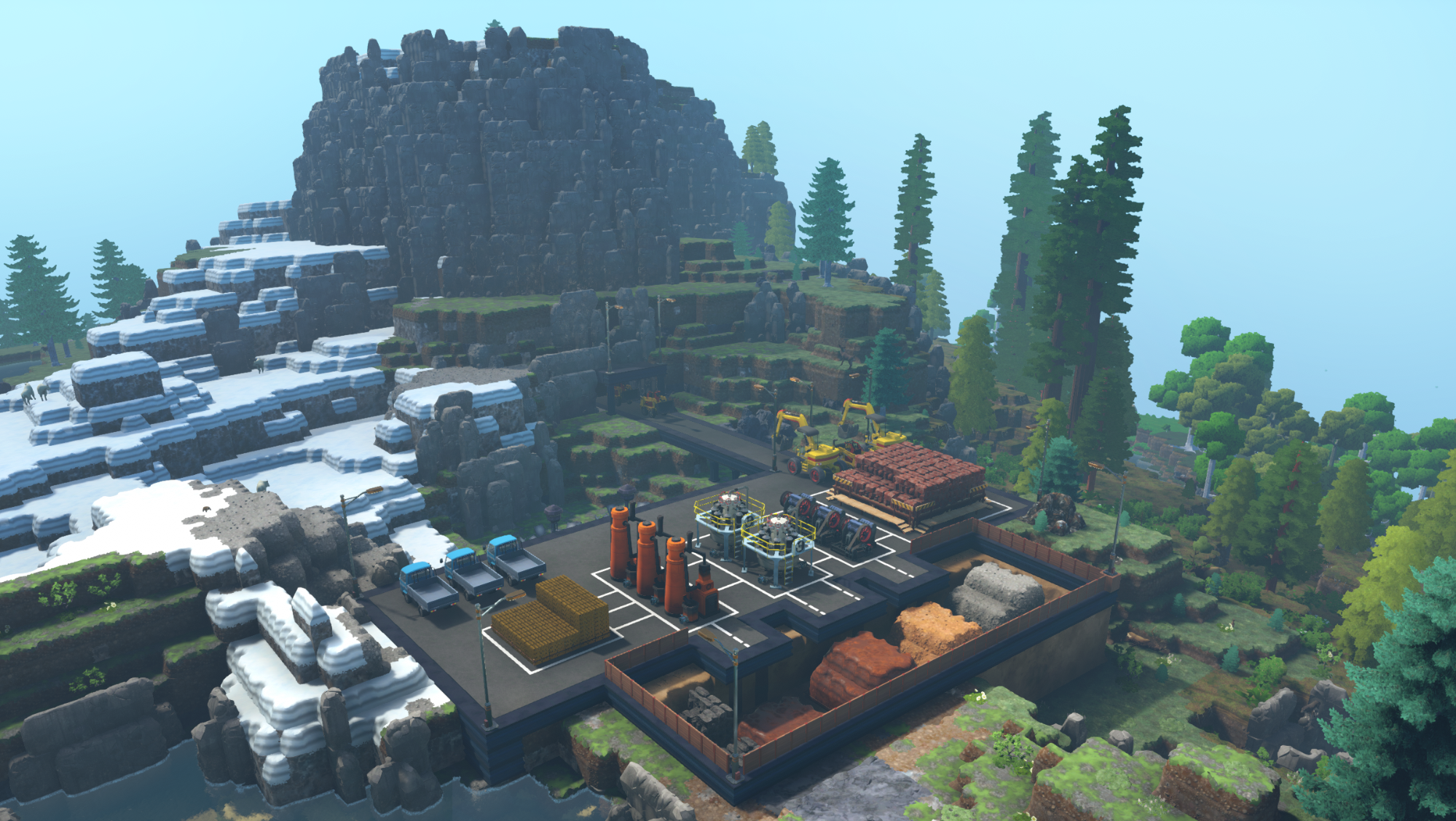
As we upgrade and deepen the systems in Eco that revolve around extracting and using all types of earth resources, we know there will be lots of balancing and updates needed to make it a satisfying part of the experience-- especially because not many games try to simulate these aspects of the economy and extractive industries! We welcome your feedback as we go, and hope you’ll look forward with us towards an expanding exploration of earth resources, their role in our economy, and their impact on the world.
I'll be covering the contents of this blog in our next livestream this Friday at 11:30am (11:30) PDT / 8:30pm (20:30) CEST, drop by and feel free to ask questions!
- Keegan O'Rourke, Lead Artist, Eco
Click here for the source of this article RSS Feed

Underground Mining.

A tailings pond.
Before we go on, he is the overview over our Eco Update 9.0 Blogs so far:
- New Government system: Constitution
- New Government system: Elections and Elected Titles
- New Government system: Demographics and Wages
- New Government system: Laws Part 1: Using the system (This blog)
- New Government system: Laws Part 2: Taxes, Ownership, Property, and Wealth
- New Government system: Laws Part 3: Tour of different actions, and Executive Actions
- New Government system: Districts
- New Crafting: Work Parties
- New Crafting: Labor System
- New Crafting: Modules and Efficiency Redesign
- New Crafting: New Tech Tree
- New Building System: Hammer and new Building Styles
- New Mining System: Mineral Dispersion and Drill Usage
- New Mining System: New Processing Path and Pollution Info (This blog)
- New Animal System: Attacking Animals
- New Ecopedia System
- New UI
- New Audio (This blog)
- New Hosted Worlds System

[Stamp Mills] are an early upgrade to the [Arrastra] crusher, allowing more efficient and timely crushing of rock and ore. Here, two of them are going through a stockpile of [Granite] to make [Crushed Granite], harnessing the power of the nearby [Windmills].
The biggest change from previous versions of Eco is that now to process mined ore, players must first crush and then concentrate ore to get metal concentrates which can be smelted. There is a new suite of world objects which can be used to accomplish these parts of mineral processing. Beginning with Iron Ore from a mine, here is the new layout of machines, products, and byproducts for initial early game mineral processing in 9.0:

From left to right, [Iron Ore] embedded in sandstone from a mine goes through the [Arrastra] which crushes it, producing [Crushed Iron Ore] with [Crushed Sandstone] as a new byproduct. The [Crushed Iron Ore] can then be poured through a [Rocker Box] to concentrate it into [Iron Concentrate], with [Wet Tailings] coming out as a new byproduct. [Iron Concentrate] can then be smelted into [Iron Bars], with [Slag] as a new byproduct.
All the new byproducts have varying levels of usefulness, and will necessitate greater operations to store long term. Future updates to Eco will expand on uses for and effects of byproducts, for instance the potential to re-mine old tailings for more metals. For 9.0, crushed stone and other aggregate like crushed slag can always be used in roads and concrete production.

An array of advanced [Jaw Crusher] machines, chewing away at [Granite] and [Copper Ore] from a nearby Copper Mine. Froth Floatation Cells sit waiting to concentrate the crushed ore, on the left. Pipes feed the Froth Floatation Cells the water they need to function from a nearby river.
Different ores require different technologies to concentrate effectively. A simple way to think of different kinds of concentration is if they are ‘wet’ or ‘dry’. Some ores like copper and gold need more chemicals and coaxing to separate and concentrate, necessitating a ‘wet’ process.

In this screenshot you can see an array of mid and end-game mineral processing technology: [Jaw Crushers] for crushing along the top, [Screening Machines], and [Sensor-based Belt Sorters] for dry concentration of iron ore, and [Froth Floatation Cells] for wet processing of all ore types in the middle. On the bottom you can see the tops of [Blast Furnaces], currently our mid and end game smelters.
A big difference between wet and dry concentration is in the byproduct produced. In 9.0 we are adding [Wet Tailings] to broadly represent the tailings produced by wet concentration processes. These tailings present a harder management problem, since they must be contained and prevented from leaking freely into their environment to avoid contamination of soils and water with freed heavy metals and residual chemicals from the processing. For now, this means they will act as a more potent pollutant in the environment and their storage must be taken more seriously. In future updates we will greatly flesh out the mechanics of tailings transport, storage, containment, and remediation or re-use. For instance, Wet Tailings will eventually be pipable, so that large mining operations can simply pipe their Wet Tailings into a nearby containment structure.

As we upgrade and deepen the systems in Eco that revolve around extracting and using all types of earth resources, we know there will be lots of balancing and updates needed to make it a satisfying part of the experience-- especially because not many games try to simulate these aspects of the economy and extractive industries! We welcome your feedback as we go, and hope you’ll look forward with us towards an expanding exploration of earth resources, their role in our economy, and their impact on the world.
I'll be covering the contents of this blog in our next livestream this Friday at 11:30am (11:30) PDT / 8:30pm (20:30) CEST, drop by and feel free to ask questions!
- Keegan O'Rourke, Lead Artist, Eco